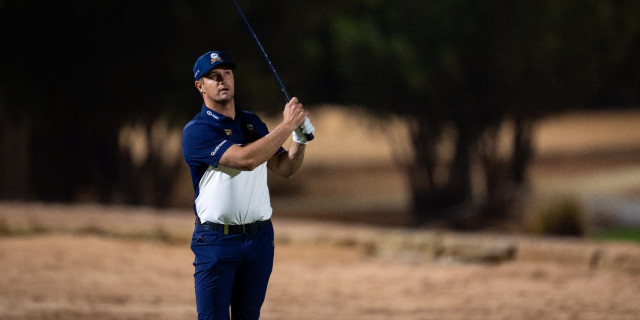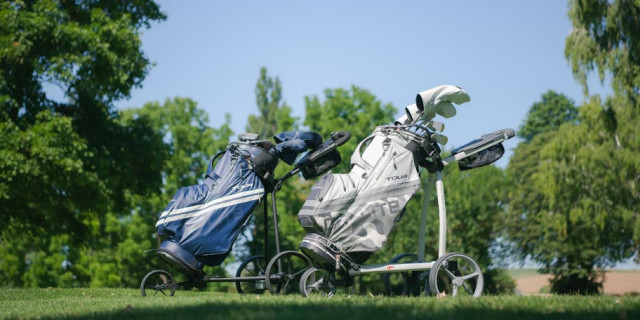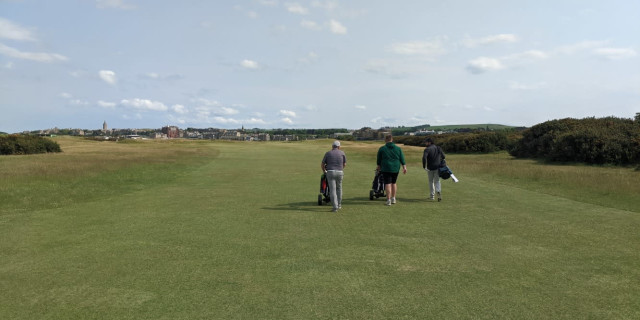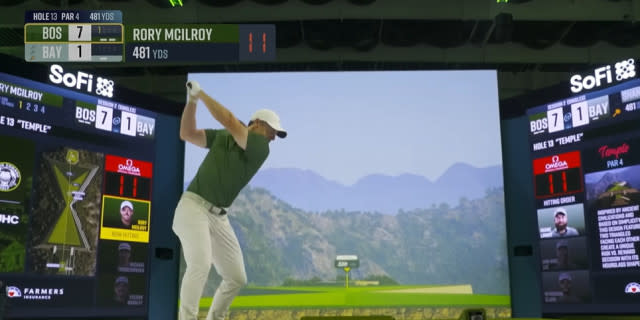
Young Golfers - Where does it end?
Every four years at the Olympics, I’m amazed at the eclectic ages of gold medallist. I find it staggering that teenagers as young as fifteen are sufficiently developed and suitably equipped with the stamina, skill, aptitude and ability to outcompete their more experienced rivals. Take 15-year-old swimmers Ruta Meilutyte and Katie Ledecky, for example. Both won gold medals and smashed numerous records at London 2012, defeating their more developed, gold-medal winning peers in the process.
It isn’t just swimming that is producing more teenage sensations. Nowadays, children are earmarked as future stars from an increasing early age, the importance of winning is instilled from childhood and the practice of ranking people in society is becoming more and more commonplace. Pushy, competitive parents who want their children to be stars - often those who want to live vicariously through their offspring to mask their own shortcomings - are also becoming more prevalent, while new scientific discoveries, training techniques and technologies are helping to expedite this process.
Where does it end?
But should we be alarmed at the dropping ages of these childhood sensations, and at what point does it end? This week, a 12-year-old boy, Ye Wocheng, qualified for the Volvo China Open, and is set to become the youngest ever entrant in a European Tour event. I’m sorry, but that is simply too young. I fully accept that some people are born superstars and exceptionally talented at a young age, but I firmly believe a minimum age needs to be instituted. Children should be enjoying their childhood, learning at school and developing relationships with those around them. Exposing a 12-year-old to European Tour golf, and the associated pressure, media intrusion and furore, is wrong.
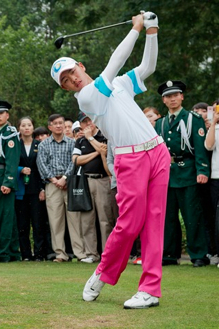 Over the last few years, the age of the youngest player in certain tournaments has dropped considerable. Just last year, 13-year-old Andy Zhang played in the US Open. A couple of months previously, fellow 13-year old Guan Tianlang became the youngest person to compete in a European Tour event. In a month’s time, aged 14, he’ll be the youngest player to play in the Masters by a staggering two years.
Over the last few years, the age of the youngest player in certain tournaments has dropped considerable. Just last year, 13-year-old Andy Zhang played in the US Open. A couple of months previously, fellow 13-year old Guan Tianlang became the youngest person to compete in a European Tour event. In a month’s time, aged 14, he’ll be the youngest player to play in the Masters by a staggering two years.
Normal childhood
I, for one, see a problem with this. How can these players have a normal childhood? Back in China, Guan will be constantly monitored and approached by the media, which will undoubtedly have a knock on effect in other spheres. Instead of focussing on his school and living a normal child’s life, he’ll be distracted by what faces him, unable to avoid the spotlight and living life in the public domain. There will also be a certain degree of expectation on his shoulders and from this point onwards, every little detail of his life will be monitored and scrutinised. Managing the expectations of an entire nation and feeling the inevitable pressure is something a 14-year-old boy shouldn’t have to deal with, let alone a pre-pubescent 12-year-old.
Another thing to consider is the impact on these children’s social development. Firstly, they can’t be maintaining a good level of academic performance. Take Guan, for example. He’ll be practicing hard before the Masters, travelling to America weeks before the tournament to prepare and swamped with media when he returns. How can he possibly keep up with his school work when this is going on? With so many talented youngsters all over the world, there is absolutely no guarantee that anyone so young will end up making it at the highest level. As such, having an education to fall back on is absolutely vital. Secondly, these children can’t be having normal interactions with people of their own age. Psychologically, feelings of difference will inevitably begin to surface.
Why the rush?
There simply isn’t any need for these players to be thrust into the spotlight so early. If they are so good, there is no harm in continuing to play in junior tournaments in their home country until they are naturally ready to step up. What’s the rush? American 17-year-old Beau Hosler set a brilliant example with regards being patient and recognising the importance of a good education. He led the 2012 US Open during Friday’s play, but, after the round, he reaffirmed his decision to go to college and get a degree before turning professional. Such maturity was refreshing to see from someone so young. He obviously had good guidance from his parents, but the fact of the matter is this isn’t always the case. Sadly, we have to face the reality that some of these young, talented golfers are pushed into the limelight by their parents. For some, it is a case of an overriding desire to see their child succeed, but I suspect many see their offspring as a cash cows.
Damaging media spotlight
History is littered with examples of people who’ve been adversely affected by the media spotlight from a young age, and not just in sport. Perhaps the most prevalent example is Tiger Woods, someone who grew up with constant media attention. I’m not suggesting that was the sole reason for his extra-marital misdemeanours, but it undoubtedly had an impact. Perhaps sneaking around and living a life of secrecy stemmed from the fact he was never afforded such a luxury growing up. Woods was denied a proper childhood, and his perception of reality was wildly divorced from the vast majority of other people his age. We need to take steps to ensure young sports stars enjoy a semblance of normality before being thrust into the public eye.
The last thing I want to do is stifle talented youngsters; I just think there are better ways from them to grow and realise their potential. Most countries have excellent schemes in place to develop promising young golfers, and stage national tournaments to enable the best young players to test their skills against others. The very best will travel overseas to take part in matches and competitions, but these predominantly take place out of the public eye. What is point in allowing 12-year-old to play a European Tour event? The best case scenario is that he’ll miss the cut by a couple of shots. The worst case scenario is that he’ll respond adversely to the pressure and spotlight and be put off the sport forever. Is it worth taking that risk?
The right course of action
Unfortunately, not all parents are like those of Matteo Manassero. The Italian’s mum and dad insisted he finished school and kept his feet firmly on the ground when he was growing up. He wasn’t rushed into the limelight and was able to enjoy a normal childhood. The result? He already has three European Tour victories at the age of 19, and is one of the most humble, grounded and affable youngsters in the world game. Sadly, the prospect of huge earnings, an inherently competitive nature and desire for their child to succeed can often lead parents away from this path.
There are ways to go about things, and if parents can’t be trusted to make the right decisions, the game’s governing bodies have a responsibility to step in and introduce a minimum age for competitors. I can’t see how a 12-year-old playing a European Tour event, or a 14-year-old playing at the Masters, can do any good whatsoever. What’s more, with technology advancing at a terrifying rate and youngsters hitting the ball so far, how long will it be before a 10-year-old earns a place in one of these tournaments? We simply cannot allow this to happen.

